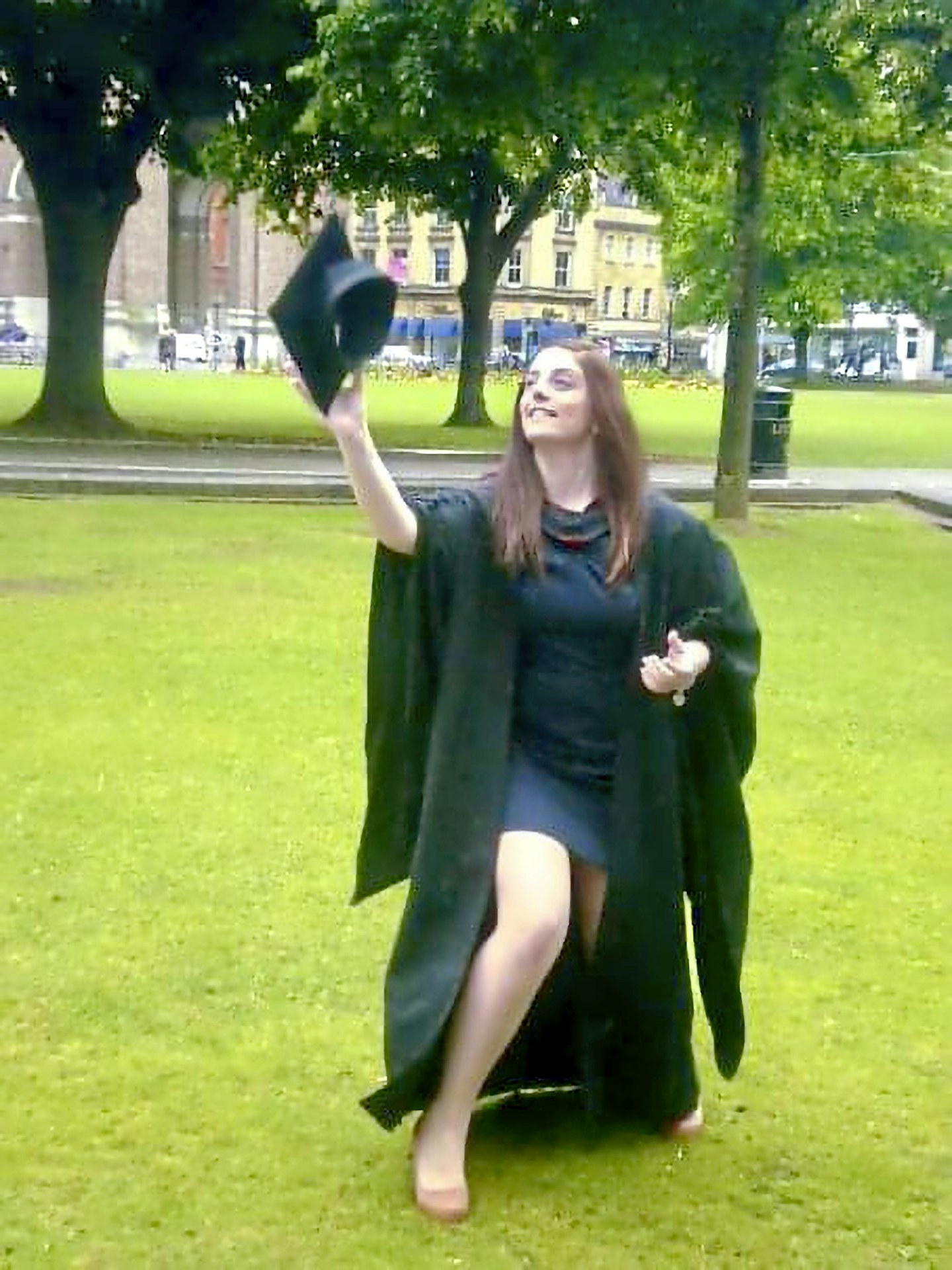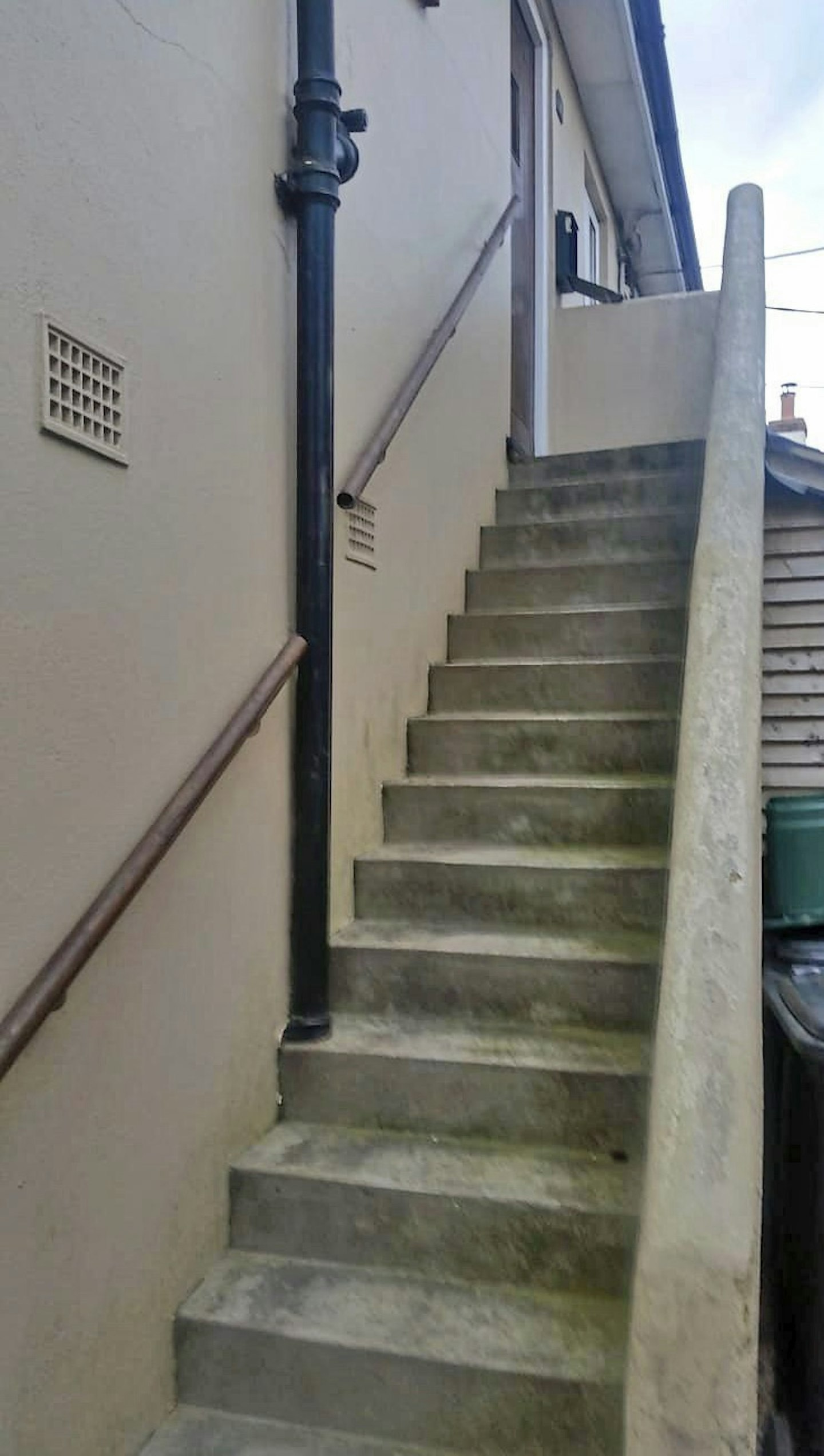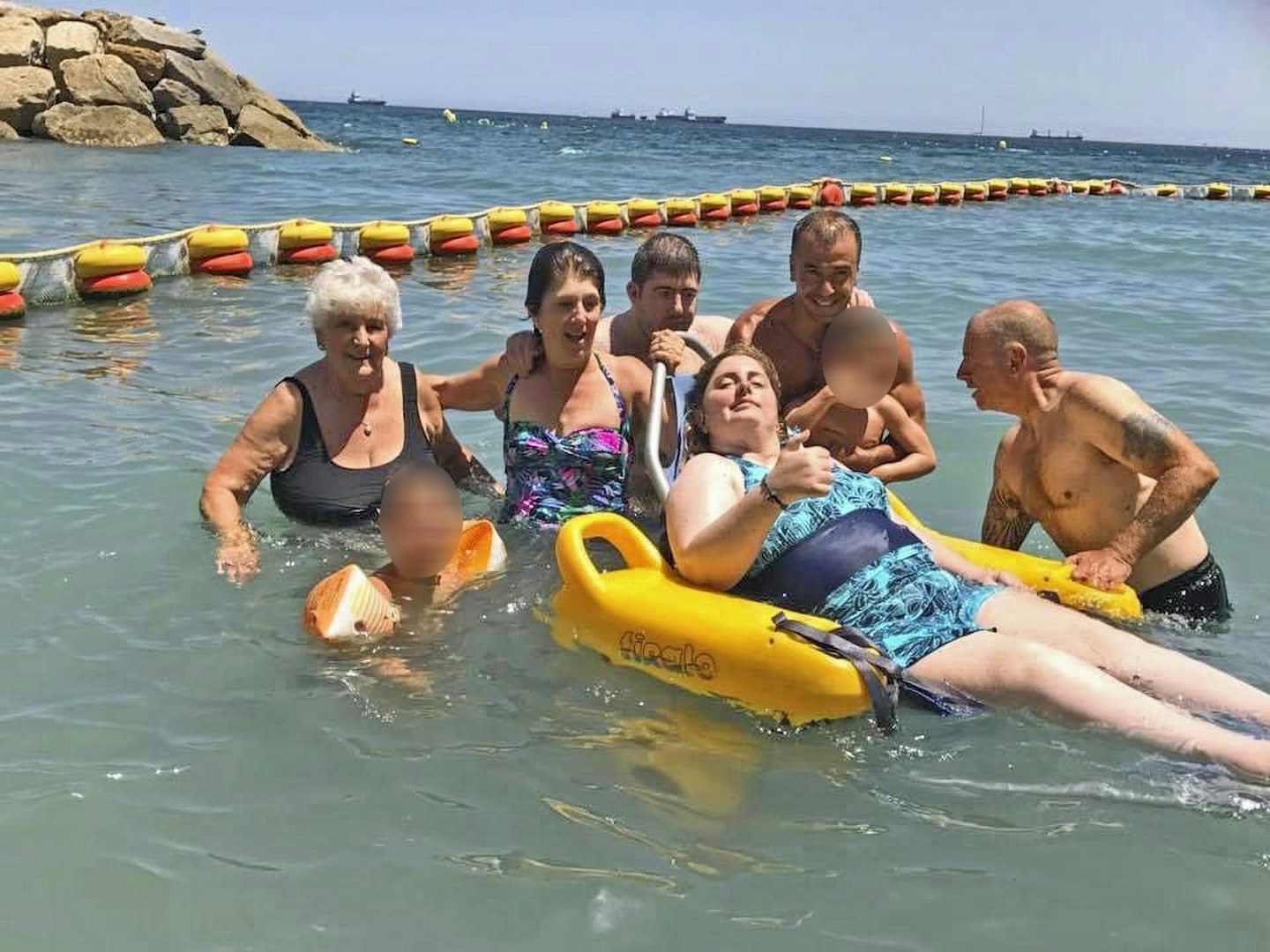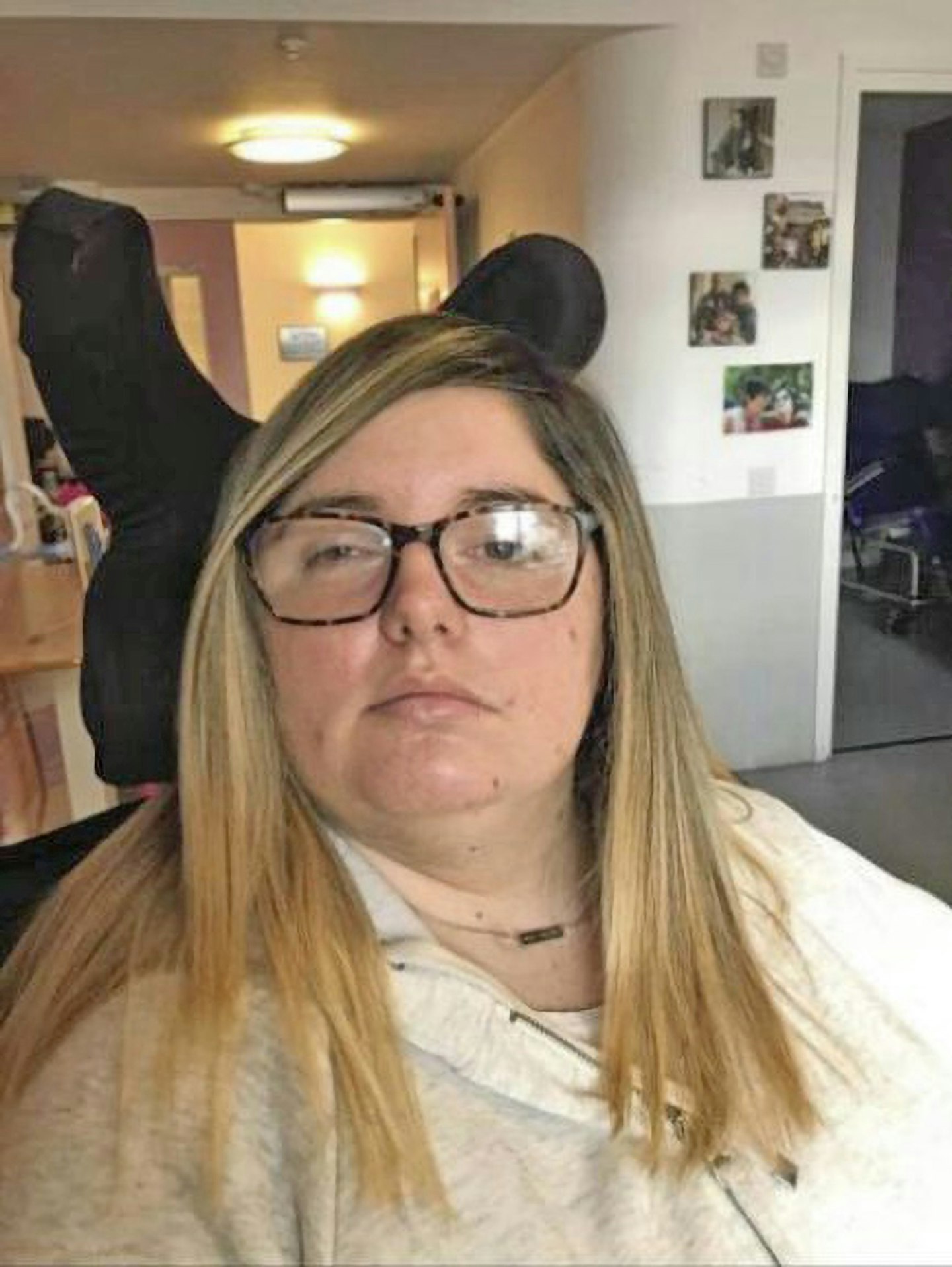When Laura met her friends for a bank holiday drink, the results were catastrophic

Standing on the beach, the sand between my toes and rays of sun bronzing my skin, I sighed.
‘This is the life,’ I said to my mum, Janet.
I was on holiday in Gibraltar. A lot of my family lived there and it was nice to get away.
Having recently graduated from university, I’d moved to a small village in Oxford, getting a job as an account manager.
It was a change from uni life but I enjoyed it.
Soon enough though, it was back to reality and I swapped sun, sea and sand for spreadsheets.
Thankfully, a three-day weekend was on its way.
‘Shall we go the pub?’ my friends suggested.
‘Absolutely,’ I said, heading to our local.
The drinks flowed as we played darts.
I need the loo, I suddenly thought.
Public toilets grossed me out and as my flat was a less than two-minute walk away, I thought I’d just pop home.

I wouldn’t be long, so I didn’t bother to tell any of my friends I was going.
Parking my pint on the table, I headed out the door.
The flat, on the side of a petrol station, had a steep flight of stairs which I started climbing.
But as I made my way up, I lost my footing.
Then everything went black…
The next thing I knew, my eyes creaked open to the sound of beeps and the smell of bleach.
I was in a hospital bed.
Looking down at myself, my body was surrounded by wires and tubes.
Panic coursed through me.
What on earth is going on? I thought to myself.
‘Lor, you’ve taken a fall and hurt your head,’ said a calm voice I recognised.
Looking to my right, I saw my mum sitting by my side.
Her face was etched with worry despite her measured tone.
'You've taken a fall and hurt your head'
I listened as she explained how a glass collector from the pub had been passing my flat when he noticed me at the bottom of the stairs — a tangle of legs and arms, my head gushing with blood having fallen hard to the concrete floor.
I was rushed to hospital for lifesaving brain surgery.
But during the operation, I’d suffered multiple strokes, leaving the left side of my body completely paralysed.
After receiving a devastating phone call that doctors thought they were losing me, my parents had rushed from their home in Essex to be with me.
I’d been in an induced coma — for two months.
When the day came to bring me round, I’d refused to wake up — forcing doctors to transfer me to a London hospital specialising in traumatic brain injuries rehabilitation.
‘Do you understand what I’m saying?’ mum asked as she finished the tale.
I took in the words, but none of it seemed real.
My head pounded.
I couldn’t believe I’d been in the pub two months before. It felt like just yesterday and that this was the worst hangover ever.

It wasn’t until I was well enough to sit in a wheelchair and start therapy to help with my recovery that I caught sight of myself in the mirror and reality sunk in.
My long brunette hair had been shaved off for the surgery and the stroke had paralysed my facial muscles and I couldn’t smile.
But the worst part was, I couldn’t speak.
During the coma, doctors had conducted a tracheostomy, inserting a small pipe into my throat to help me breathe as well as feeding me via a tube.
I needed therapy to retrain my lips and mouth to do the right things if I wanted to speak and eat on my own again.
‘For yes, look up, for no, look down,’ nurses explained as they taught me a new way to communicate. ‘We need to reintroduce speech slowly.’
It was so frustrating, I knew exactly what I wanted to say, but I just couldn’t get the words out.
Slowly, I made progress and was able to be fed puréed food and yogurt.
'Make as much noise as you can'
My poor mum was terrified I would choke, watching me constantly.
Then one day, during a break from therapy, I sat in the hospital coffee shop with my parents.
‘Quick, while your mum’s not looking,’ dad whispered, spooning the top layer of the foam of his latte into my mouth.
I savoured the sweet creamy taste before carefully swallowing it down. It tasted so good!
As dad slurped down his drink, I fiddled with his phone, practising turning it with my fingers.
‘Got some movement there, kiddo, do you think you could hold a pencil?’ he asked as mum joined us at the table.
He passed me a pencil while mum scrambled for a scrap of paper.
‘Try and write something,’ mum encouraged as I gripped the pencil.
Slowly, my handwriting scrawled on to the paper.
‘Home’ I wrote. That’s where I wanted to be.
But the reality was, in my condition, it was unlikely I’d be able to go home, certainly not to the flat.

With my body paralysed, I’d need round the clock care after I was discharged from hospital.
Recovery was slow and frustrating and the longer I was in hospital, the more depressed I became.
Maybe it would have been better if I’d died, I thought.
But months later, with my breathing tube removed, I was discharged into a neuro rehabilitation centre.
It was a step in the right direction and I grew determined to speak again.
Each day, I’d lay on my back, expanding my lungs and stretching my diaphragm.
‘Make as much noise as you can,’ my carers said.
Soon small growls and grumbles escaped my mouth.
And it wasn’t long before those noises turned into words.
‘Do you want to sit up?’ my mum asked.
‘No,’ I growled.
I couldn’t believe it.
Having not been used for months, my voice sounded crispy and unnatural.
But I was speaking.
Soon, I was reciting numbers and the alphabet.
I FaceTimed my mum, having her repeat back what I was saying to prove she could understand me.
And soon, I started leaving her voice notes too.
‘I love you mum,’ I told her.
It felt like I was getting my independence back.
Now, I’m doing well.
I’ve had to come to terms with what’s happened to me.
The brain injury has changed our lives forever — for me, my family and my friends.
But I’ve grieved my old life and learnt to accept that I have to make the most of my life as it is now.
I’m lucky to have amazing family and friends who involve and include me in everything they do.
I’ve moved into a care home called Livability — a home specialising in giving independence to disabled people.
I’ve been accepted on to a master’s in psychology course and for my 30th birthday, we went back to Gibraltar.
I was worried it wouldn’t be the same, but they had so much support for me.
I was even able to get into the sea using a hoist and floats.
As the water washed over me, I felt truly happy.
I’ve written a book about my experience to help others who find themselves in a similar situation. This kind of thing can happen to anyone.
But it’s important not to live in regret — life is precious and it can be taken away in a flash.
Laura’s book: ‘LOR: A Personal Tale of Traumatic Brain Injury’ is available to buy now on Amazon.
